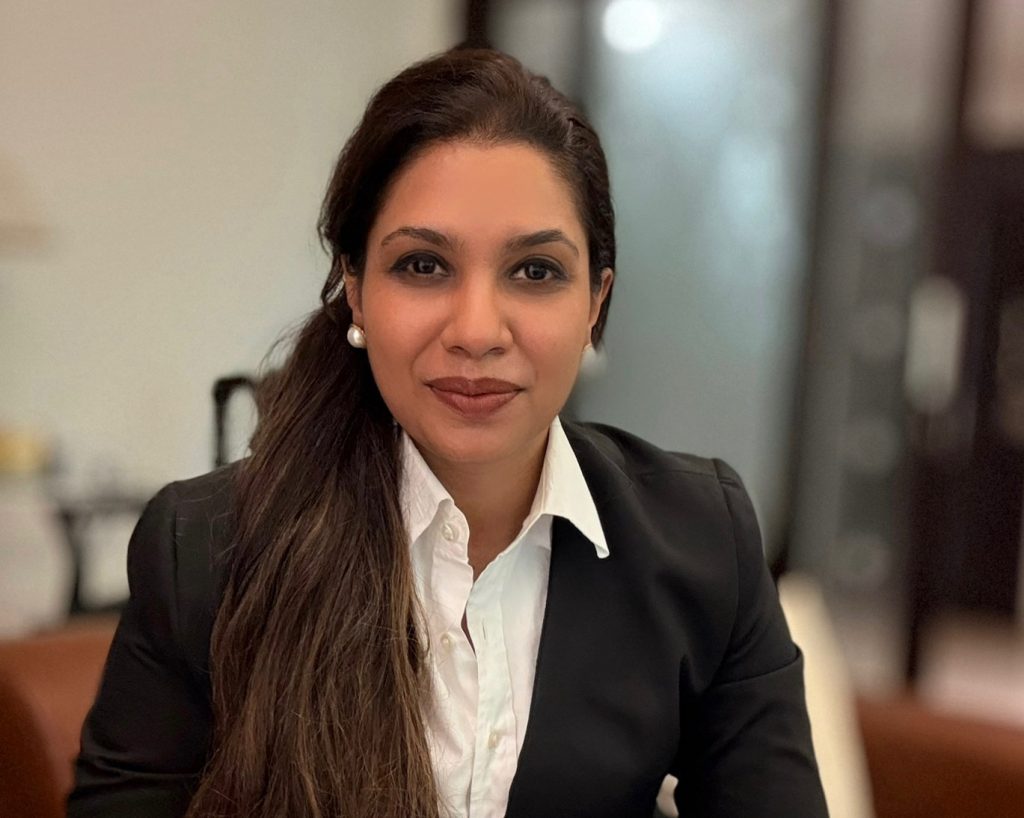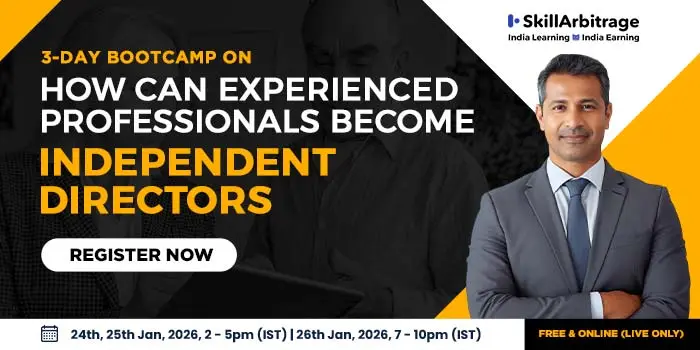This interview has been published by Anshi Mudgal and The SuperLawyer Team

With extensive experience in law, you specialize in financial offences, particularly under the PMLA and the Prevention of Corruption Act. What initially drew you to this area, and how have you seen the landscape of white-collar crime evolve in India over the years?
What drew me to this space and what keeps me here is the fact that financial crime enforcement sits at the crossroads of criminal law, regulatory risk, and constitutional rights. As I see it, financial offences are not just a regulatory issue. They are a fundamental rights issue. When assets are attached, when accounts are frozen, or when public notices are issued, it’s not just compliance at stake, it’s the right to property, the right to reputation, and sometimes the very ability of a client to run their business. Even the presumption of innocence can become collateral in financial crime enforcement. These are fundamental protections under the Constitution, but they get tested in the financial crime context more often than we like to admit.
Over the years, I’ve seen the enforcement landscape shift from reactive prosecution to preemptive intervention. There’s more focus on pattern recognition, on tracing funds, re-examining legacy transactions, and questioning ownership structures. Regulatory triggers have become anticipatory. Regulators are now looking at patterns of conduct, structures of ownership, and financial relationships that may give rise to perceived risk, even before a clear offence has been proven. This means that perfectly legitimate business activity can still lead to enforcement action, especially when cross-border elements or financial opacity are involved. For businesses and individuals, it creates exposure not just to penalties, but to loss of control, reputational damage, and prolonged regulatory entanglement. For lawyers, it demands a different toolkit: you need to defend the transaction, secure the property, and protect the client’s constitutional rights all at once. It requires precision, discretion, and the ability to respond both to immediate crises and long-term structural risks.
Your early career included serving as a law clerk to two Chief Justices of India. How did that exposure shape your understanding of judicial reasoning, and in what ways does it continue to influence your litigation strategy today?
Anyone who clerks with a judge of a constitutional court will have fundamentally altered how they approach litigation because they realize that judicial reasoning is not simply how judges think about the law, but also policy implications, social impact, and the architecture of fairness. At the Supreme Court level, the court is not just applying precedent; it’s balancing competing rights, institutional considerations, and long-term consequences. My clerkship experience trained me to think in layers that while there’s the technical legal argument, there is also the judicial perspective on control, liberty, propriety, and fairness, all of which come into play when dealing with any legal issue, but especially when dealing with financial offence litigation. Enforcement cases aren’t just about statutes like the PMLA or the Prevention of Corruption Act, they often raise underlying constitutional questions, particularly when asset security or personal liberty is at stake. So I always prioritize anticipating what the judicial priority is with any issue. Is it asset preservation, regulatory deterrence, or protecting fundamental rights? My strategy is calibrated accordingly whether that means structuring a case for early intervention, limiting collateral damage, or helping courts find a middle path that resolves the issue without setting unintended precedents.
Having assisted Mr. K. K. Venugopal during your tenure in the office of the Attorney General, what were some of the key takeaways from working closely as a counsel?
Working with Mr. Venugopal has been an exercise in legal craftsmanship. He is someone who can reduce the most complex matters into their simplest legal propositions, without losing nuance. The biggest takeaway was learning how to balance legal acumen with diplomacy. As the Attorney General, you are not just an advocate but also a constitutional advisor. That role requires restraint, judgment, and an ability to see the larger picture.
I also observed the value of preparation. No argument was ever made lightly. Everything was tested, refined, and stress-tested again before being presented in court. That level of rigor has stayed with me.
What are some common blind spots or legal risks that founders and corporations often overlook?
One of the most common blind spots is transactional tunnel vision that founders and boards are often focused on growth and deal-making, but not on the legal structures underpinning that growth. This leads to risks in areas like regulatory exposure, anti-money laundering compliance, or cross-border taxation.
Another overlooked area is relationship risk. Founders may underestimate how interpersonal disputes with co-founders, partners, or family members can evolve into full-blown legal conflicts affecting control, governance, and even asset security.
There’s also the misconception that having a legal team on payroll automatically means risk is covered. Often, the most sensitive risks i.e. reputational damage, regulatory inquiries, or intra-group conflicts require a different layer of strategic legal counsel.
What advice would you offer to young lawyers aiming to build a similar niche in litigation and compliance?
Financial crime, compliance, and regulatory defense are multidisciplinary. What would help is to understand not just statutes but also market behaviour, regulatory intent, and enforcement trends. So one would have to look beyond the black-letter law.
Secondly, building both litigation and advisory skills. The best compliance lawyers understand how enforcement happens, and the best litigators understand where risk begins. That dual perspective is valuable.
Finally, cultivating relationships of trust. In sensitive practice areas, clients don’t just need legal expertise; they need discretion, judgment, and someone who can help them think several steps ahead.
What influenced your decision to pursue law in the first place? Was it a long-standing goal, or did your interest develop over time through specific experiences?
For me, law was a natural choice because it sits at the intersection of language, strategy, and problem-solving. I was always drawn to fields that involve analyzing systems and human conduct. That said, my interest in financial crime and regulatory law evolved over time. The more I saw how deeply legal structures shape real-world outcomes especially for businesses and individuals operating in grey zones, the more I realized this was the area where I wanted to focus.
After working across diverse legal roles, what inspired you to set up your own independent practice? What initial challenges did you face, and how did you navigate them?
It was more a gradual recognition that the kind of legal work I wanted to do was strategically complex, often preventive rather than reactive and didn’t quite fit within the traditional firm or counsel structure. I realized that clients didn’t just need courtroom representation or compliance checklists; they needed someone to map their risk, help them anticipate legal exposure, and work across silos: private, regulatory, reputational. The decision to go independent was more about alignment. I wanted to design a practice that allowed for deep thinking, selective work, and long-term relationships. That came with its own challenges and one of the core challenges has been that the Indian legal and business ecosystem isn’t entirely ready for this kind of role. Many still see legal advisors in binary terms either courtroom litigators or compliance officers. My practice doesn’t fit neatly into either box and it will only be over time that businesses in India will begin to see the difference strategic legal foresight makes. That means only a select group of clients who value discretion, long-term thinking, and trust truly understand its value. But that’s also what makes the work meaningful. I get to work closely with people at critical junctures helping them retain control, preserve reputation, and structure around risk.
How do you balance the intensity of your practice with personal life?
Balance is always a work in progress, especially in a high-stakes advisory role. For me, the key is boundaried availability i.e. being there for clients when it matters, but also carving out space for rest, reflection, and personal growth.
I also find that writing provides a different kind of professional engagement that’s both fulfilling and restorative.
Why is legal writing and scholarship important to you?
I find that legal writing sharpens practice. It forces you to distill complex legal issues into clear arguments, and in doing so, you refine your own thinking. For me, writing is not just about sharing insights with peers, it’s about contributing to a culture of clarity of thought in the legal profession. Besides, practitioners have a duty to engage with emerging issues, test ideas publicly, and contribute to the evolving landscape of legal interpretation. That’s how the profession grows, and how we serve clients better.
Get in touch with Rushda Khan –



